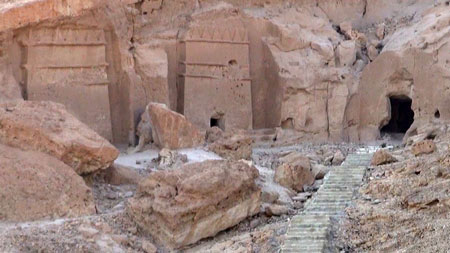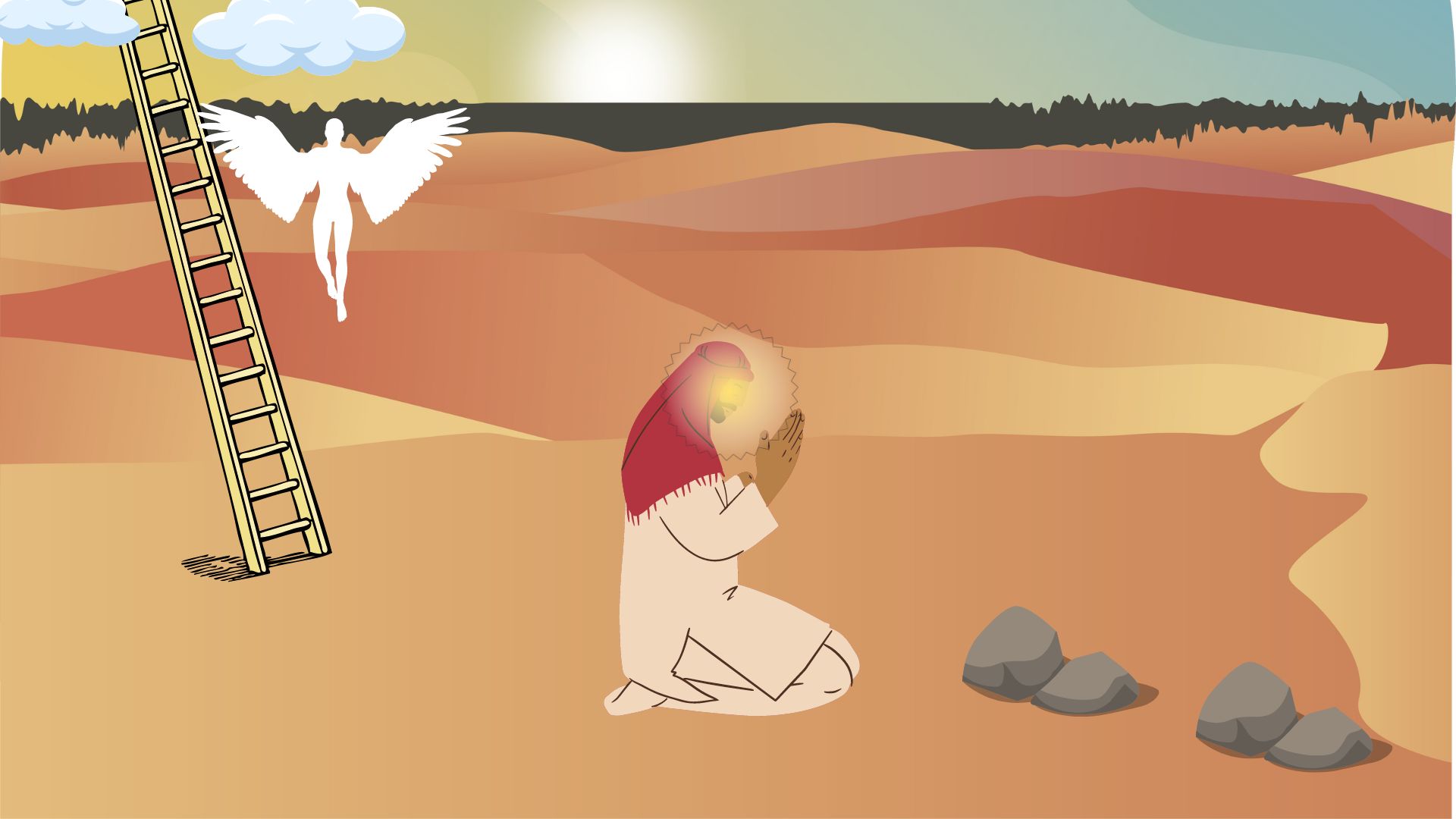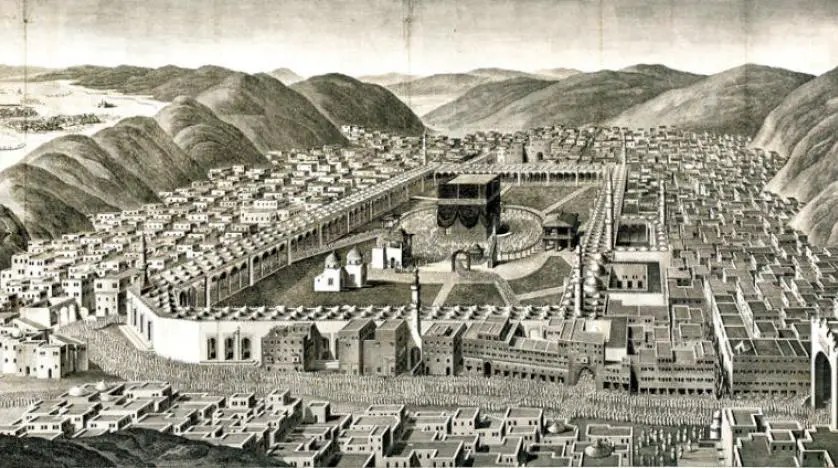Story of Prophet Shuaib (AS) is brief and without much detail. Whatever there is, though, demonstrates what a good man and devoted worshipper of Allah he was. One of only four Arab prophets referenced by name in the Quran is Prophet Shuaib, who is also known as Jethro in Biblical history. Allah provided Shuaib (AS) with the gift of speaking well and the ability to effortlessly convey what he intended to say. The story of Prophet Shuaib (A.S.) is closely linked with Prophet Musa (A.S.)’s. Many academics concur that Shuaib was the elderly man who, upon hearing that Moses was fleeing Egypt, gave him shelter, security, and the hand of one of his daughters in marriage. Although the Quran informs us that Prophet Shuaib was from the Midiani (Madyan) people, where Moses sought refuge, there are no reliable sources that confirm or reject this.
People of Midian (Madyan)
We discover that Prophet Shuaib was one of the few genuinely upright and good men of Midian by combining the accounts of both Prophets Moses and Shuaib. The people were all thieves and outlaws, cheating each other and anyone unfortunate enough to pass through their townships and nomadic camps. Due to God’s blessings, they generally lived happy and prosperous lives. But rather than being appreciative, they sought to assemble more, and they would cheat and lie to do so. Many of them became atheists, while others turned to the gods of the woods or nature, and they distanced themselves from the religion of God.
Prophet Shuaib’s Story and Mission

Prophet Shuaib’s purpose, as with all of God’s prophets, was to urge his people to worship only Allah and obey His commands. He attempted to do this by bringing to their attention the gifts and favors that God had placed upon them, but they paid no attention. Shuaib was addressed by those who had not totally renounced belief as having worshipped incorrectly in the manner of their ancestors “Would you like us to renounce the faith of our ancestors? Can’t we use our own property whatever we please? “they scoffed.
“And to the people of Midian We sent their brother Shuaib. He said: ‘O my people! Worship God! You have no other God but Him’…” (Quran 7:85)
According to the Islamic historian Ibn Kathir, the inhabitants of Midian were the first to charge travelers who traveled through their realm fines and tolls. Even though Prophet Shuaib tried his best to persuade them that God would punish them if they did not stop, they kept on leading lives of robbery and injustice. Shuaib appealed to them, warning that God would see them homeless and destitute by taking away the gifts they had become accustomed to expecting if they did not exact precise measures and weight in their business activities.
“‘…so give full measure and full weight and wrong not men in their things, and do not do mischief on the earth after it has been set in order, that will be better for you, if you are believers. And sit not on every road, threatening, and hindering from the Path of God those who believe in Him and seeking to make it crooked…’” (Quran 7:85-86)
Prophet Shuaib persisted in arguing with his people, insisting that his goal was to do what was best for them rather than himself. Like all other prophets who had come before him, he lived out all he preached and only asked for what he himself required of those he tried to guide. They insulted and despised Prophet Shuaib, as is typical of unbelievers, and did not live up to their words.
“He said, ‘O my people! Tell me if I have a clear evidence from my Lord and He has given me a good sustenance from Himself (shall I corrupt it by mixing it with the unlawfully earned money). I wish not, in contradiction to you, to do that which I forbid you. I only desire reform to the best of my power. And my guidance cannot come except from God, in Him I trust and unto Him I repent.’” (Quran 11:88)
Prophet Shuaib continued by cautioning his people that they were probably going to end up in the same situation as the people of Prophets Noah, Hud, and Saleh. Their defiance had resulted in destruction. He warned, “The people of Lut are not distant from you” (Qur’an 11: 89). According to Ibn Kathir, this sentence implies that the inhabitants of Midian, like those of Prophet Lut, engaged in heinous acts like highway robbery. He claimed that any more interpretations of that statement were likewise appropriate given how similar in time, geography, and behavior the Prophet Shuaib’s people were to the Prophet Lut’s people.
In response to Shuaib’s incessant criticism, his followers threatened to stone him if it weren’t for his family. Despite this, Shuaib continued to preach the need for repentance. The leaders of the unbelievers urged Shuaib’s followers to practice the faith of their ancestors again, but Shuaib prayed to God, pleading with Him to defend the upright among them. Shuaib and his supporters were expelled from the community. The non-believers carried on with their ignoble ways and stopped paying attention to Shuaib’s warnings.
However, God was well aware of Shuaib’s good deeds and those of his followers, as well as of all the efforts taken to stop the unbelievers from acting dishonestly and with ingratitude. Shuaib forewarned of dreadful punishment, and the Quran references this punishment of the unrepentant people in no fewer than three distinct chapters.
“…We saved Shuaib and those who believed with him, by mercy from Us. And an awful cry seized the wrong-doers, and they lay (dead), prostrate in their homes.” (Quran 11: 94)
“So the earthquake seized them and they lay (dead), prostrate in their homes.” (Quran 7:91)
“But they belied him, so the torment of the day of shadow (a gloomy cloud) seized them. Indeed that was the torment of a Great Day.” (Quran 26:189)
They were exposed to the searing sun for at least seven days, Ibn Kathir explains in more detail. Water was used in vain as they attempted to cool off. They fled into a desert and sought what they thought to be relief beneath a foreboding cloud, but the cloud began to shower fire drops, and the ground trembled beneath them. God uttered, “Those who denied Shuaib appeared to have never lived there (in their homes). The losers were those who denied Shuaib.” (Quran 7:92) Prophet Shuaib refrained from weeping over a people to whom he had offered sincere and sound advice.
Lesson Learned from Prophet Shuaib’s story
The Madyan people’s mentality deteriorated even further as a result of their failure to recognize that Allah had sent a prophet to provide them with instruction. They made fun of Shuaib (AS) and defied Allah’s wrath. They were utterly deserving of the catastrophe they experienced with such a heartless attitude. Allah punished them by giving them an experience that not many people would have had before or after that. This incident should serve as a warning to unbelievers about what can happen when they disobey Allah’s instructions. Even if Allah does not punish someone for their sins in this life, He will in the Hereafter. In Islam, shirk is an unforgivable sin.
Shuaib (AS) turned away from his people as they passed after him. He said he had done all he could to assist them. He told them to worship Allah alone and invited them to follow His way. But they were haughty. He cautioned them, but they disregarded his advice. As a result, Allah entirely destroyed them, and He had no reason to feel sorrow for them.
This Story of Prophet Shuaib demonstrates the significance of obeying Allah. Shuaib (AS)’s people earned their fate, just as it was with the people of Nuh (AS), Hud, and Saleh. They would have fared far better if they had listened to Allah and quit their bad activities. This is true for all of humanity. We must obey Allah in order to achieve the purpose for which He created us. Only after we adhere to the Quran’s path will we be able to do it.
May we learn something valuable from the Story of Prophet Shuaib and strengthen our iman.
Read more stories of our beloved prophets. Check out our Instagram Feed.









